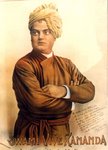An Interview With God
I dreamed I had an interview with God.
"Come in," God said. "So, you would like to interview Me?" "If you have the time," I said. God smiled and said: "My time is eternity. It is enough to do everything.
What questions do you have in mind to ask me?"
I asked, "What surprises you most about mankind?"
God thought for a few moments and then answered: "That they get bored of being children, are in a rush to grow up, and then long to be children again. That they lose their health to make money and then lose their money to restore their health.
That by thinking anxiously about the future, they forget the present, such that they live neither for the present nor the future.
That they live as if they will never die, and they die as if they had never lived"
God placed my hands in His and we were silent for while. Then I asked, "As a parent, what are some of life's lessons you want your children to learn?"
God replied with a smile:
"To learn that they cannot make anyone love them. What they can do is to let themselves be loved.
To learn that what is most valuable is not what they have in their lives, but who they have in their lives.
To learn that it is not good to compare themselves to others. All will be judged individually on their own merits, not as a group on a comparison basis.
To learn that a rich person is not the one who has the most, but is one who needs the least.
To learn that it only takes a few seconds to open profound wounds in persons we love, and that it takes many years to heal them.
To learn to forgive by practicing forgiveness. To learn that there are persons that love them dearly, but simply do not know how to express or show their feelings.
To learn that money can buy everything but happiness.
To learn that two people can look at the same thing and see it totally different.
To learn that a true friend is someone who knows everything about them...and likes them anyway.
To learn that it is not always enough that they be forgiven by others, but that they have to forgive themselves."
I sat there for awhile enjoying my visit with God. I thanked Him for His time and for all that He has done for me and my family.
He replied, "Anytime. I'm here 24 hours a day. All you have to do is ask for me, and I'll answer"
People will forget what you said.
People will forget what you did...but people will never forget how they felt when they were with you.


